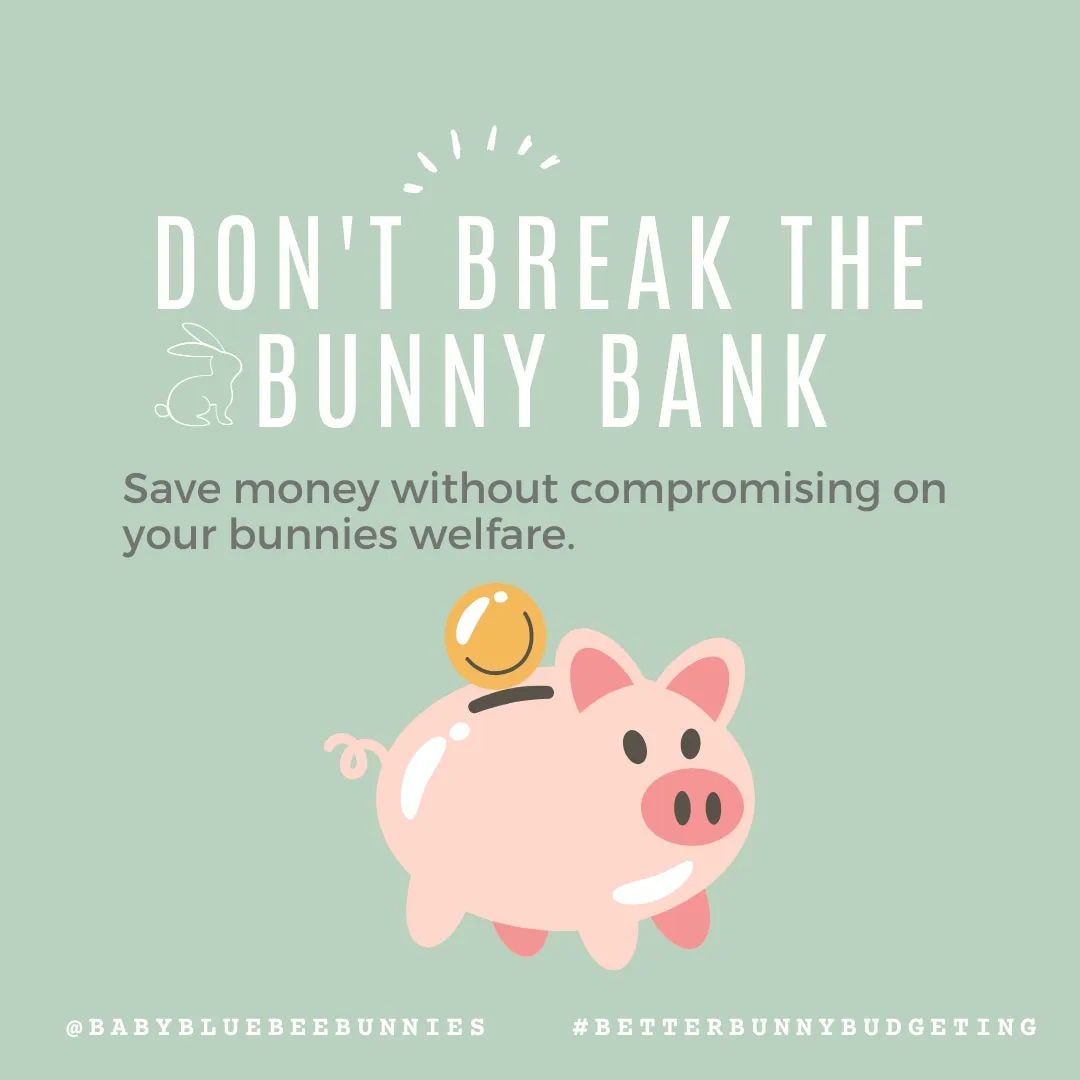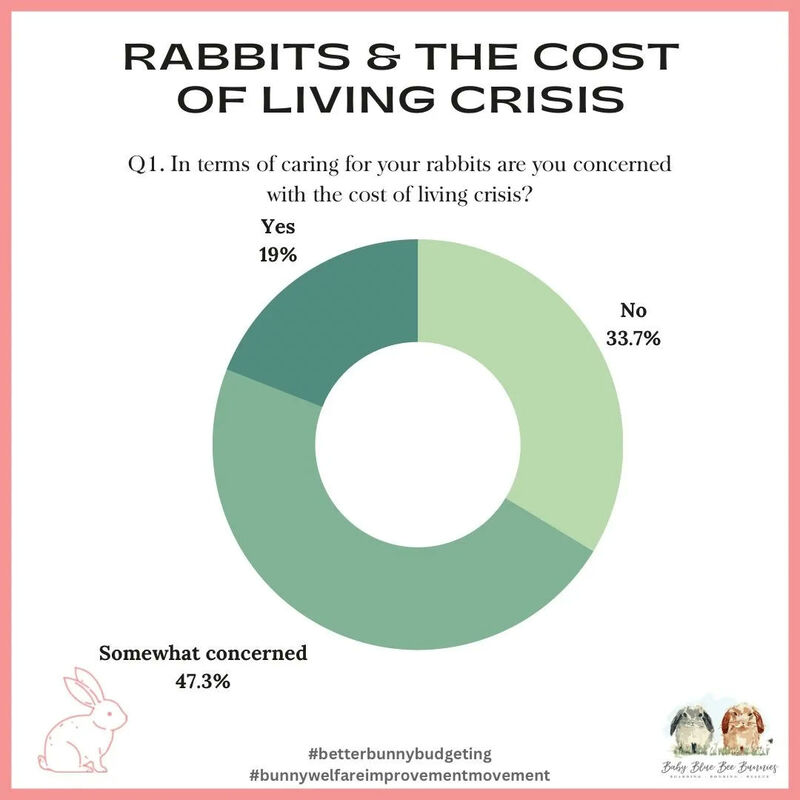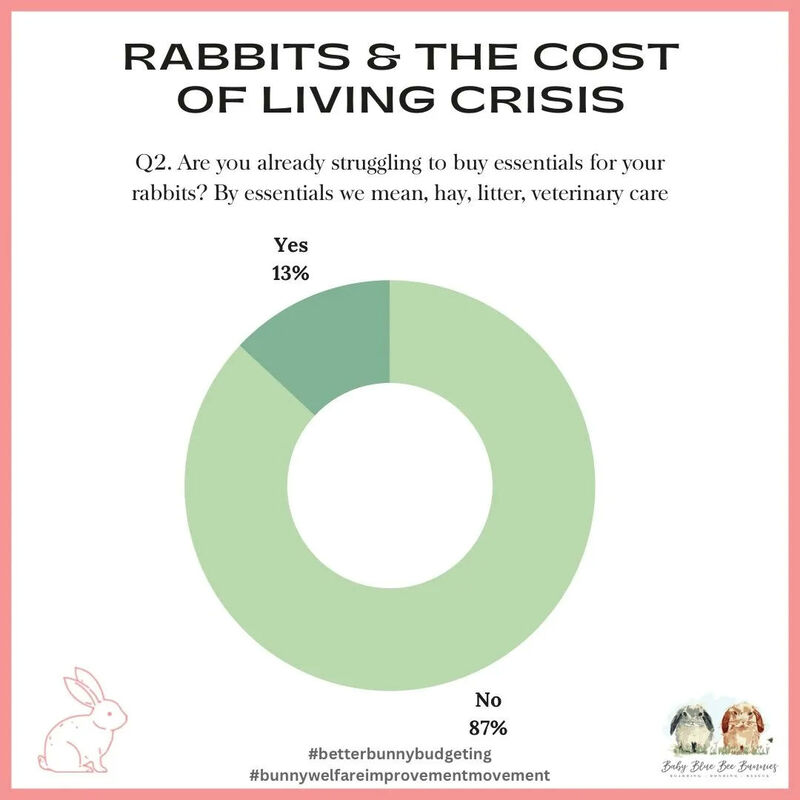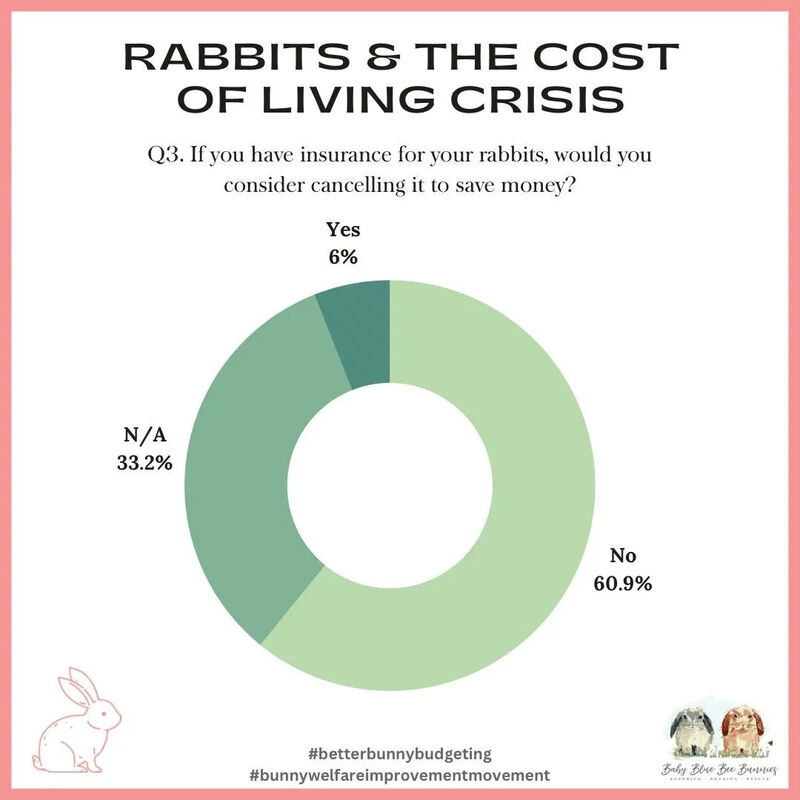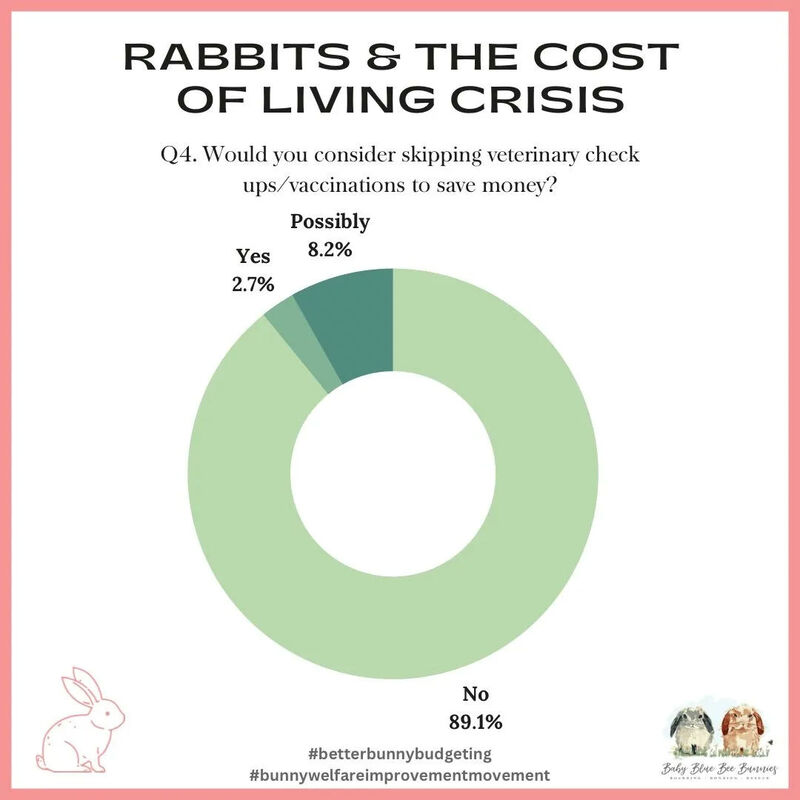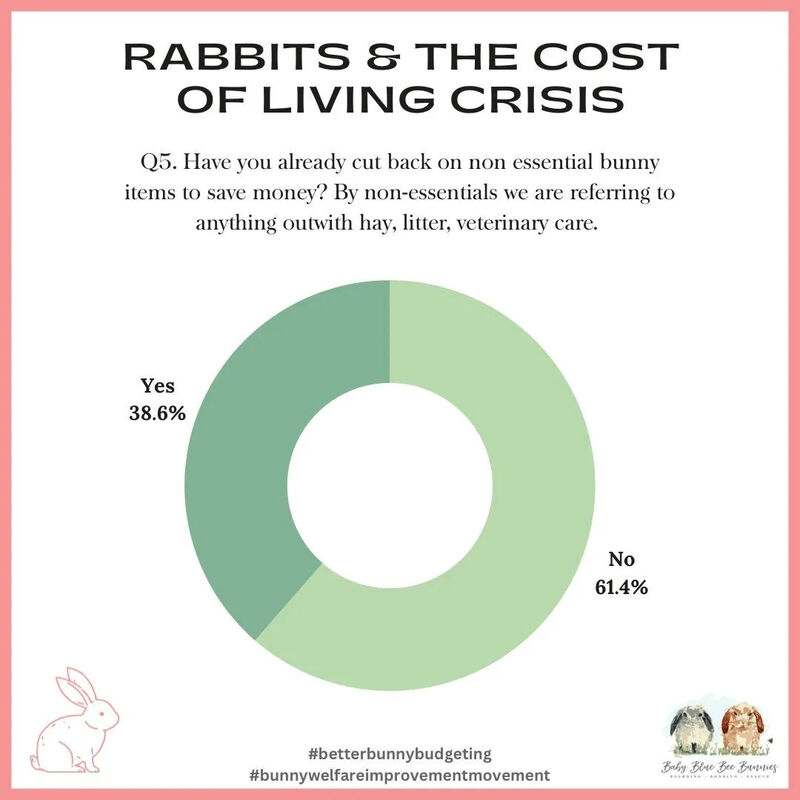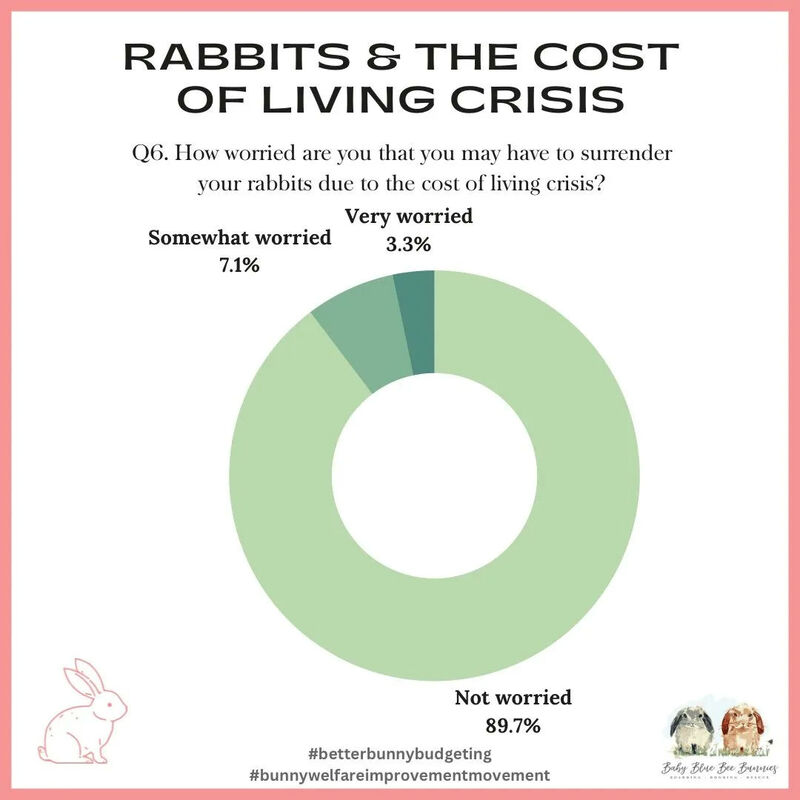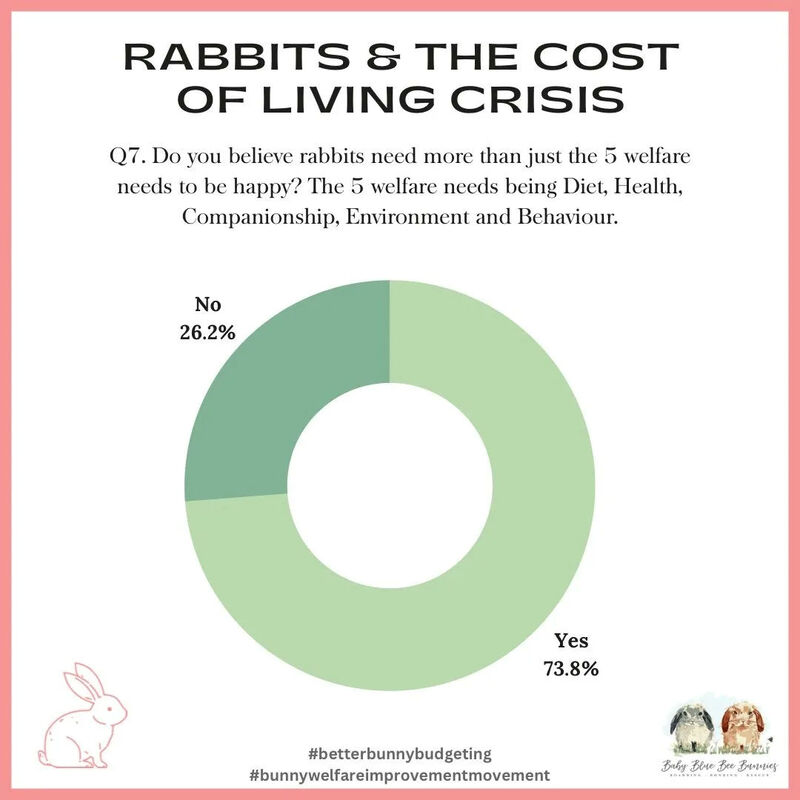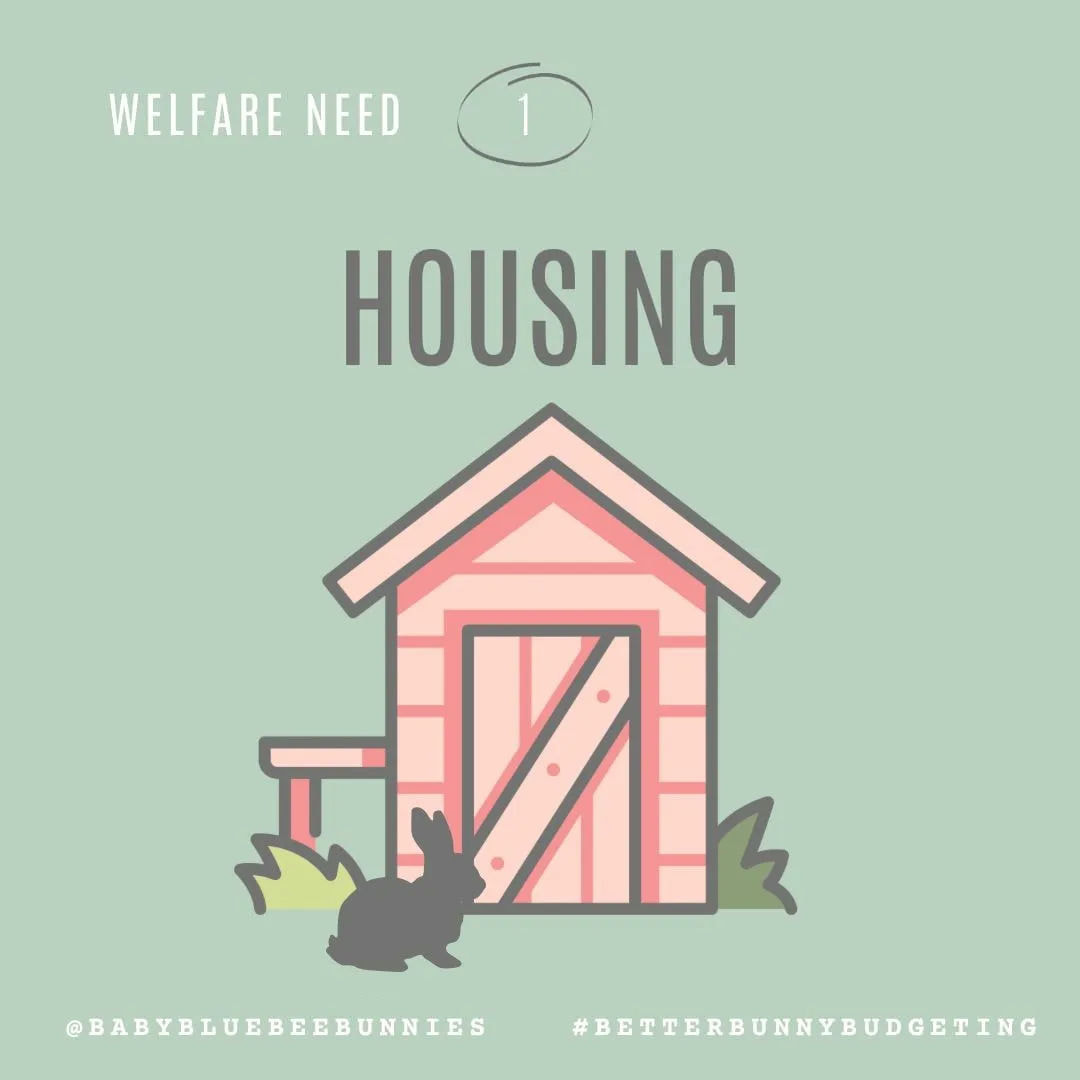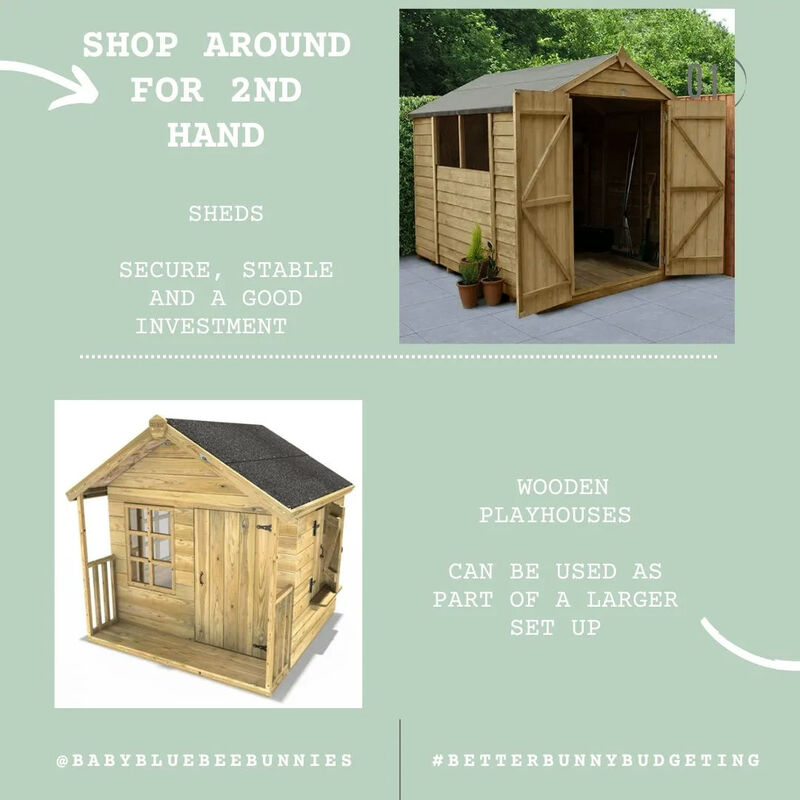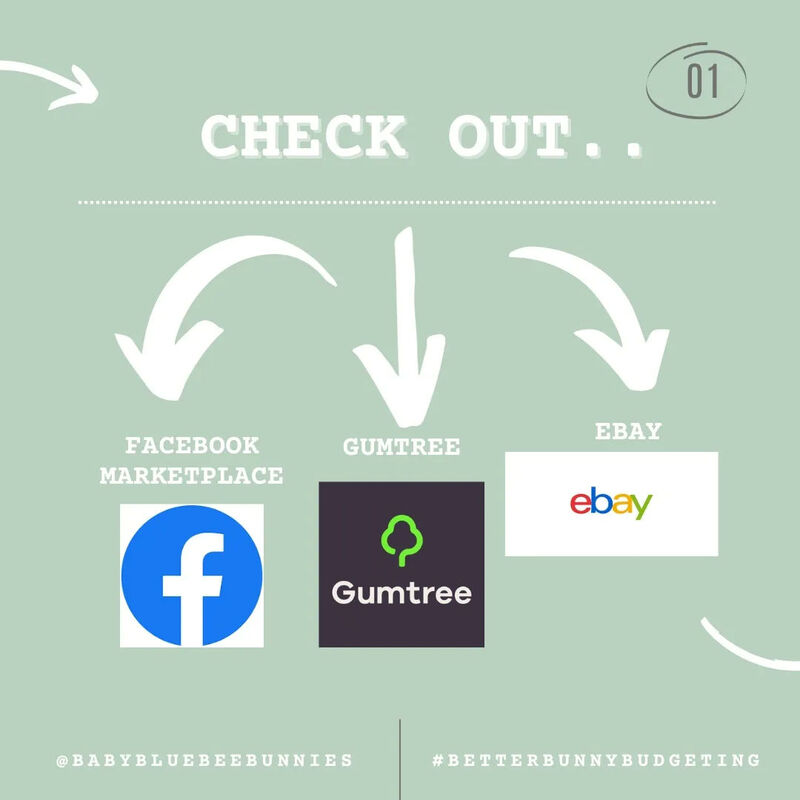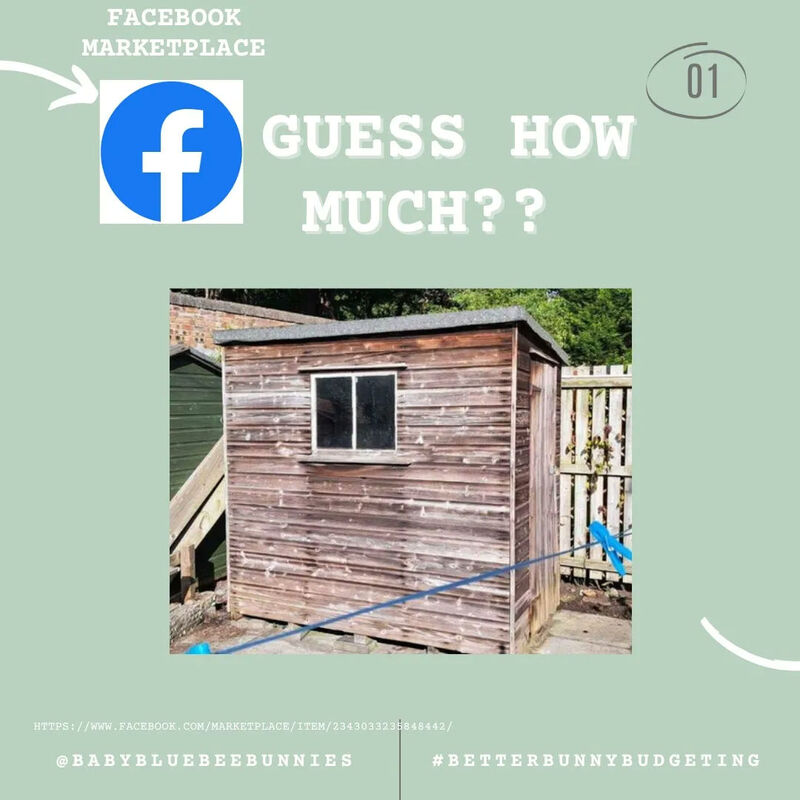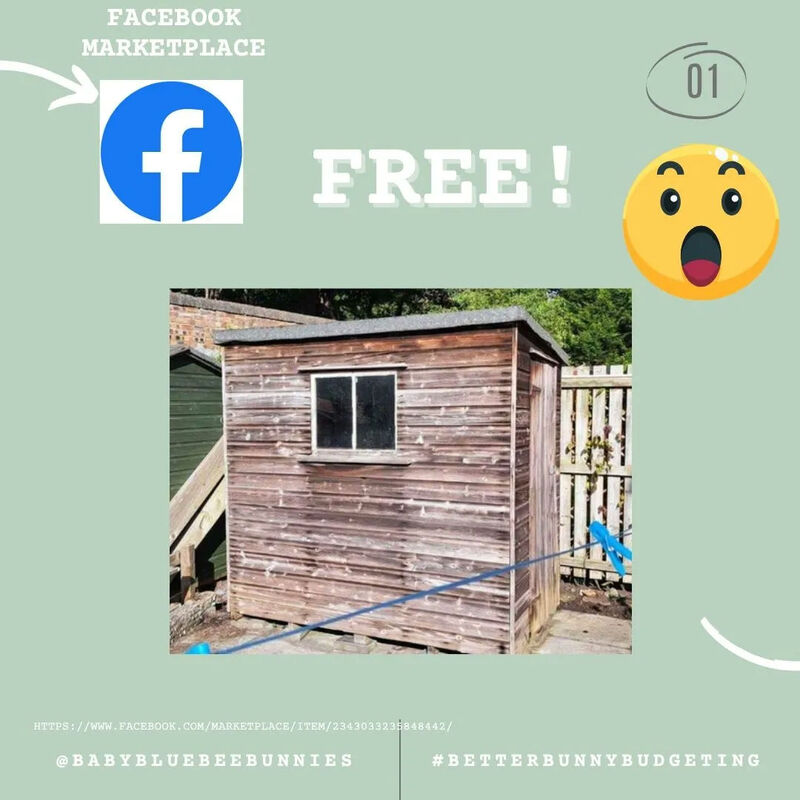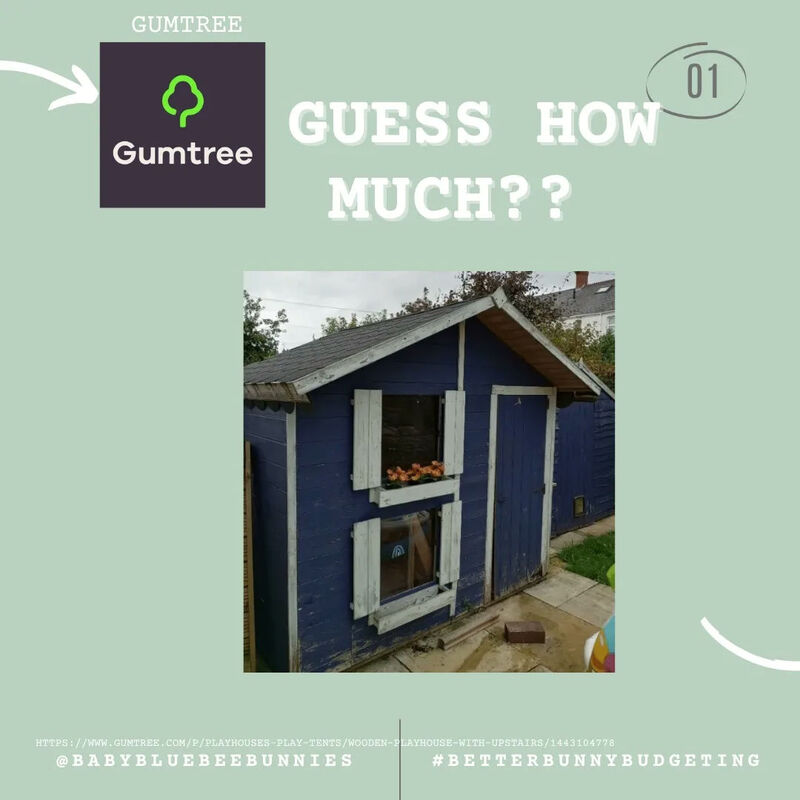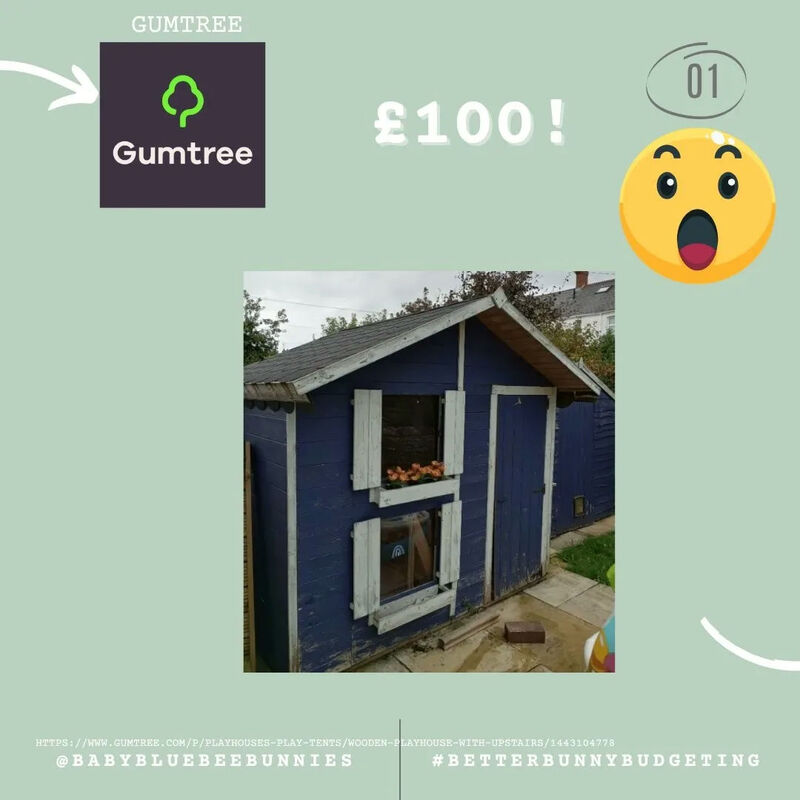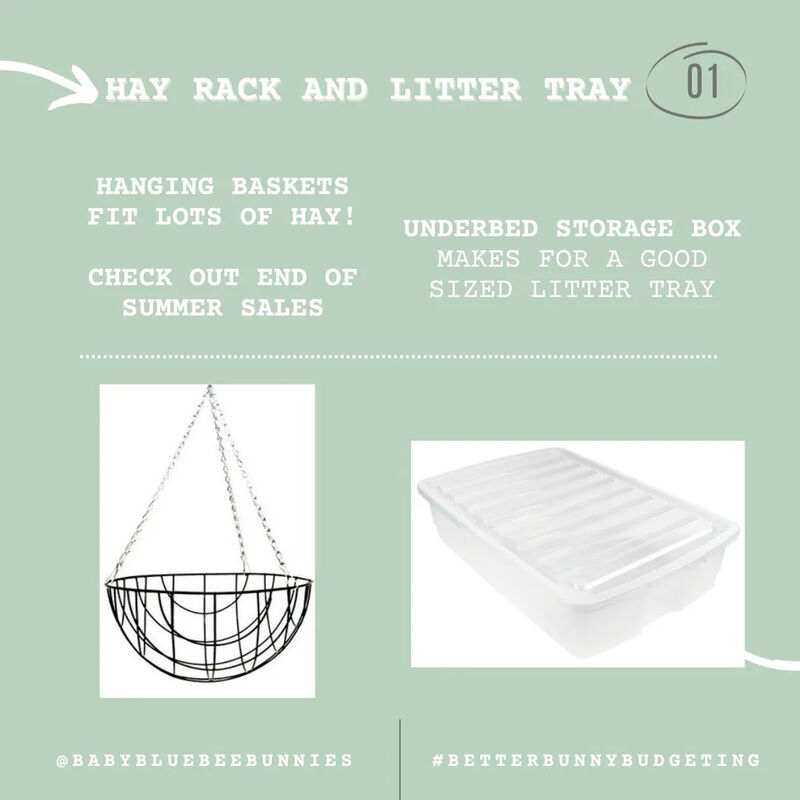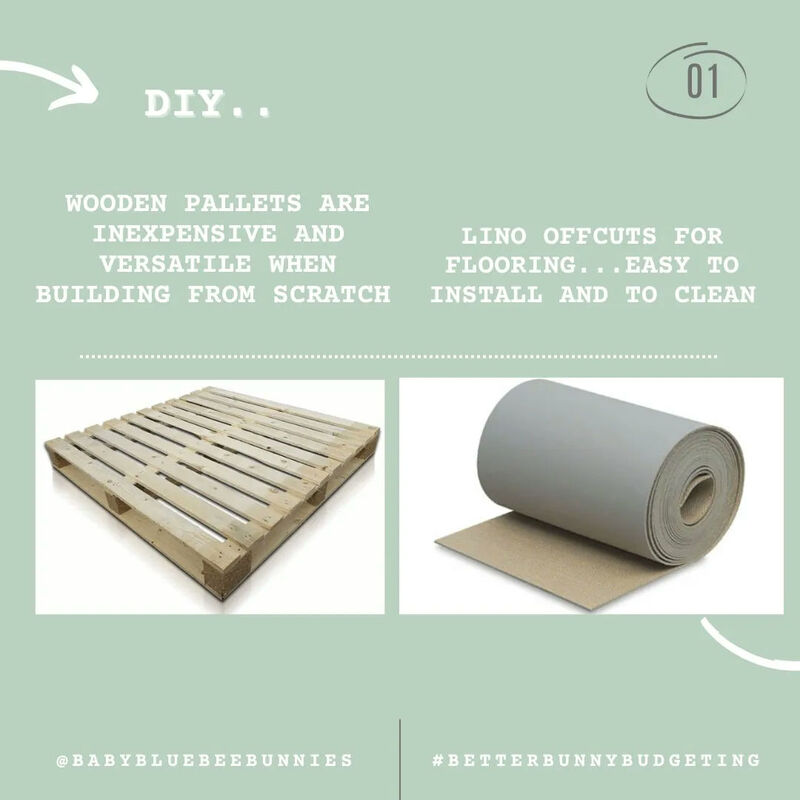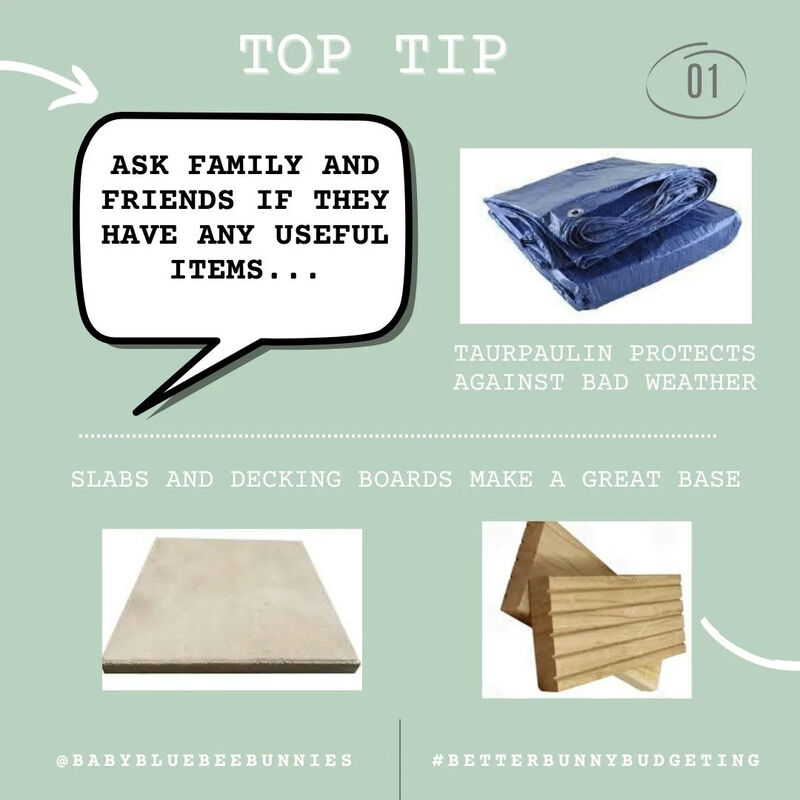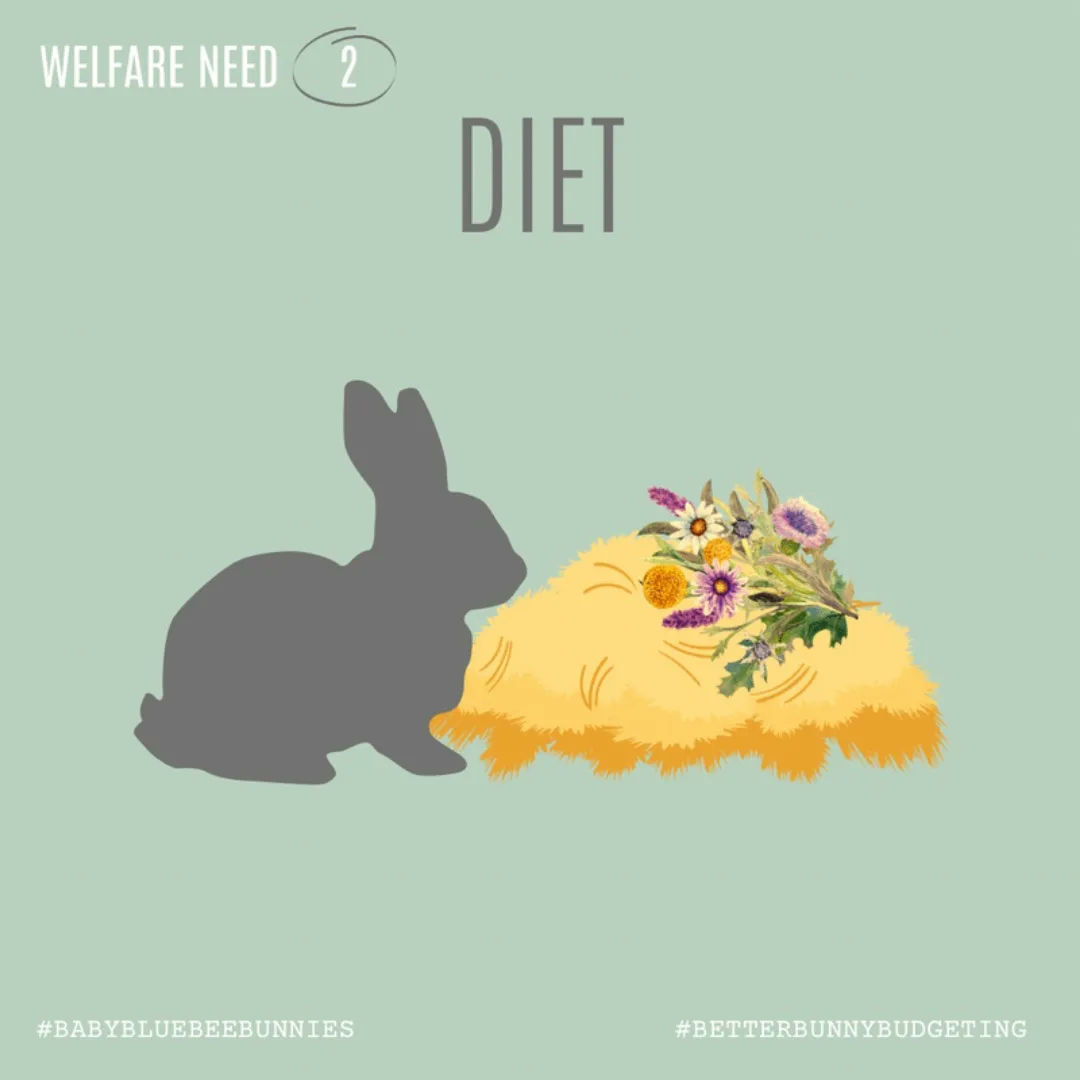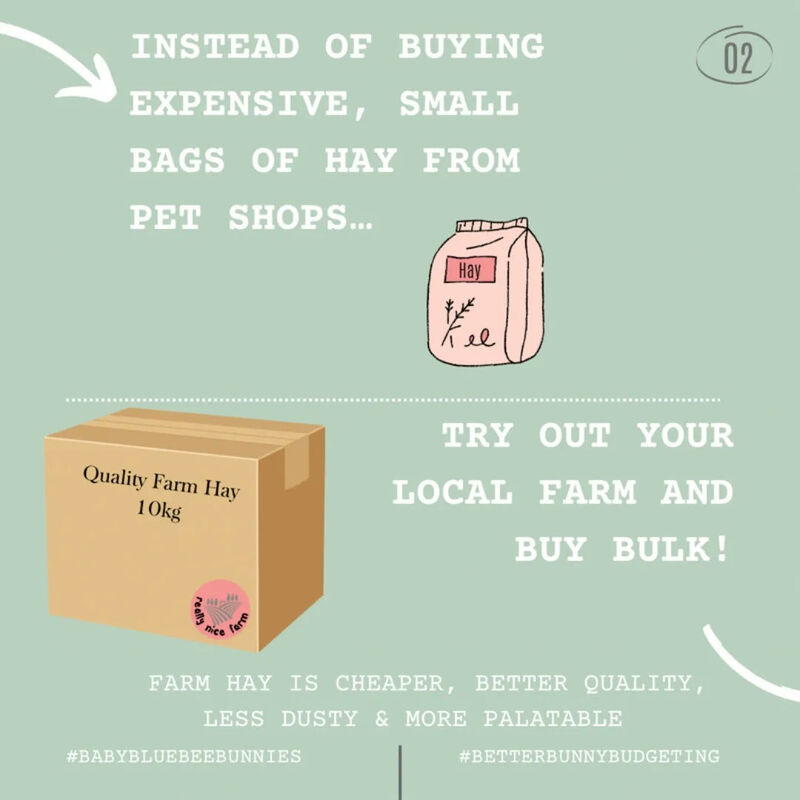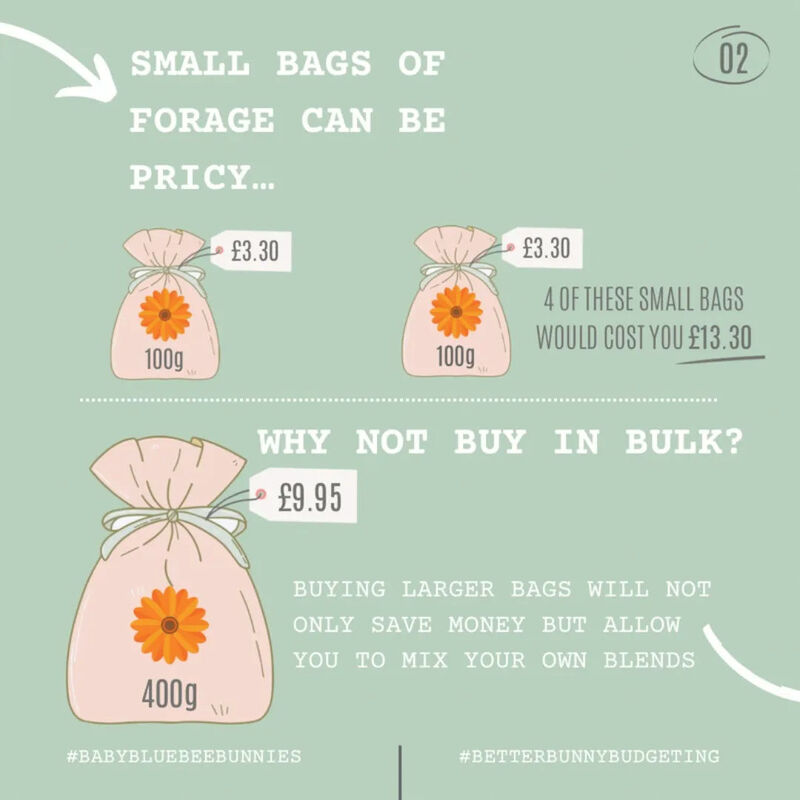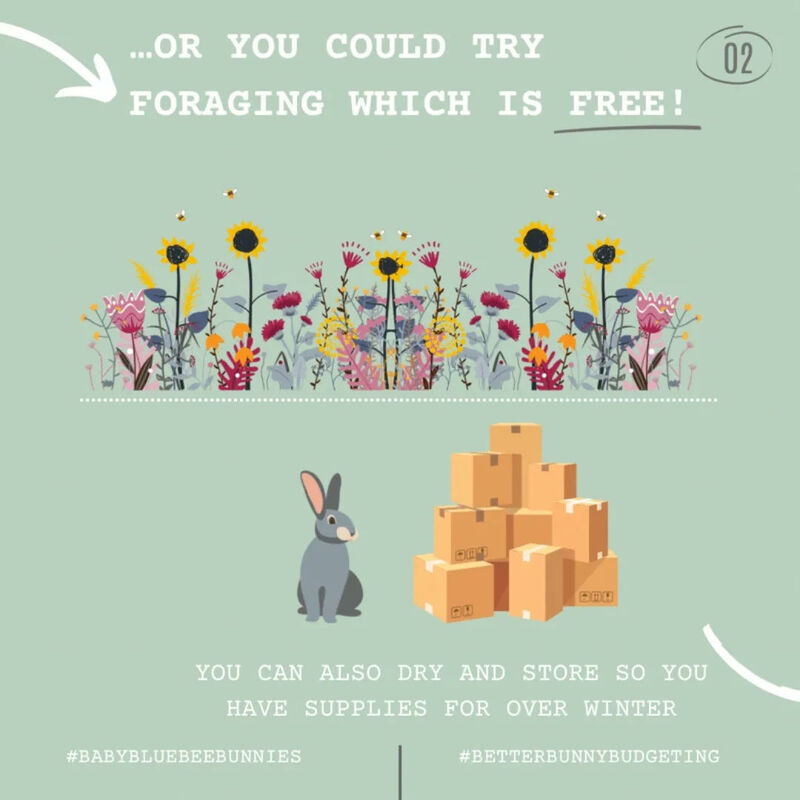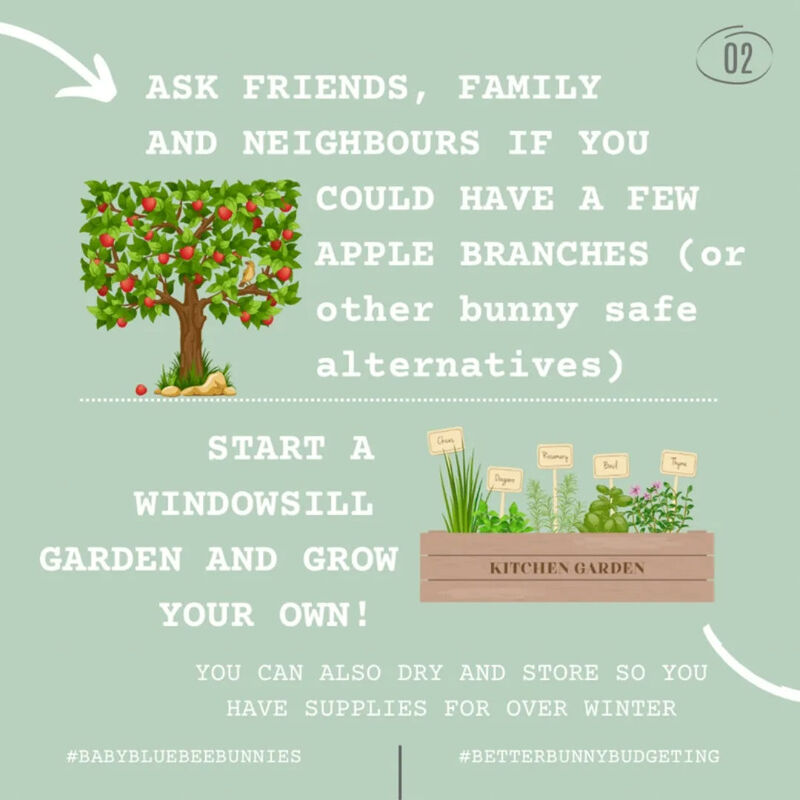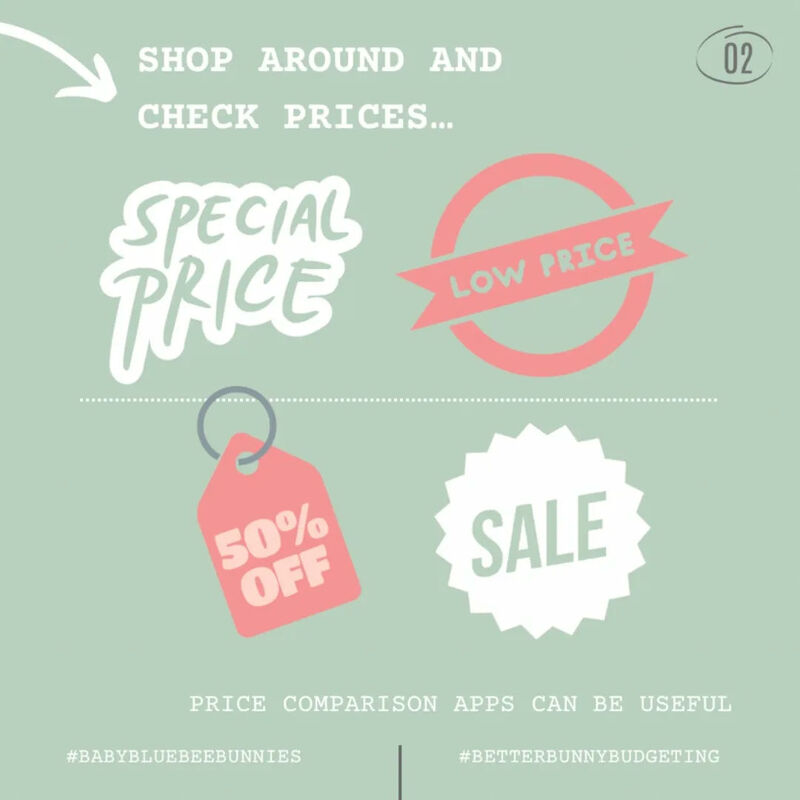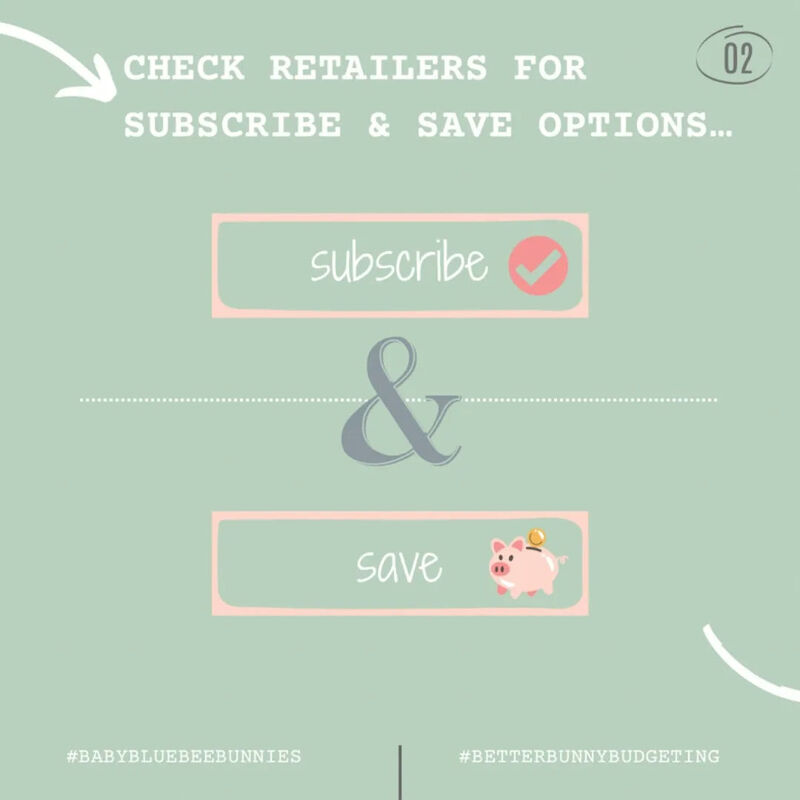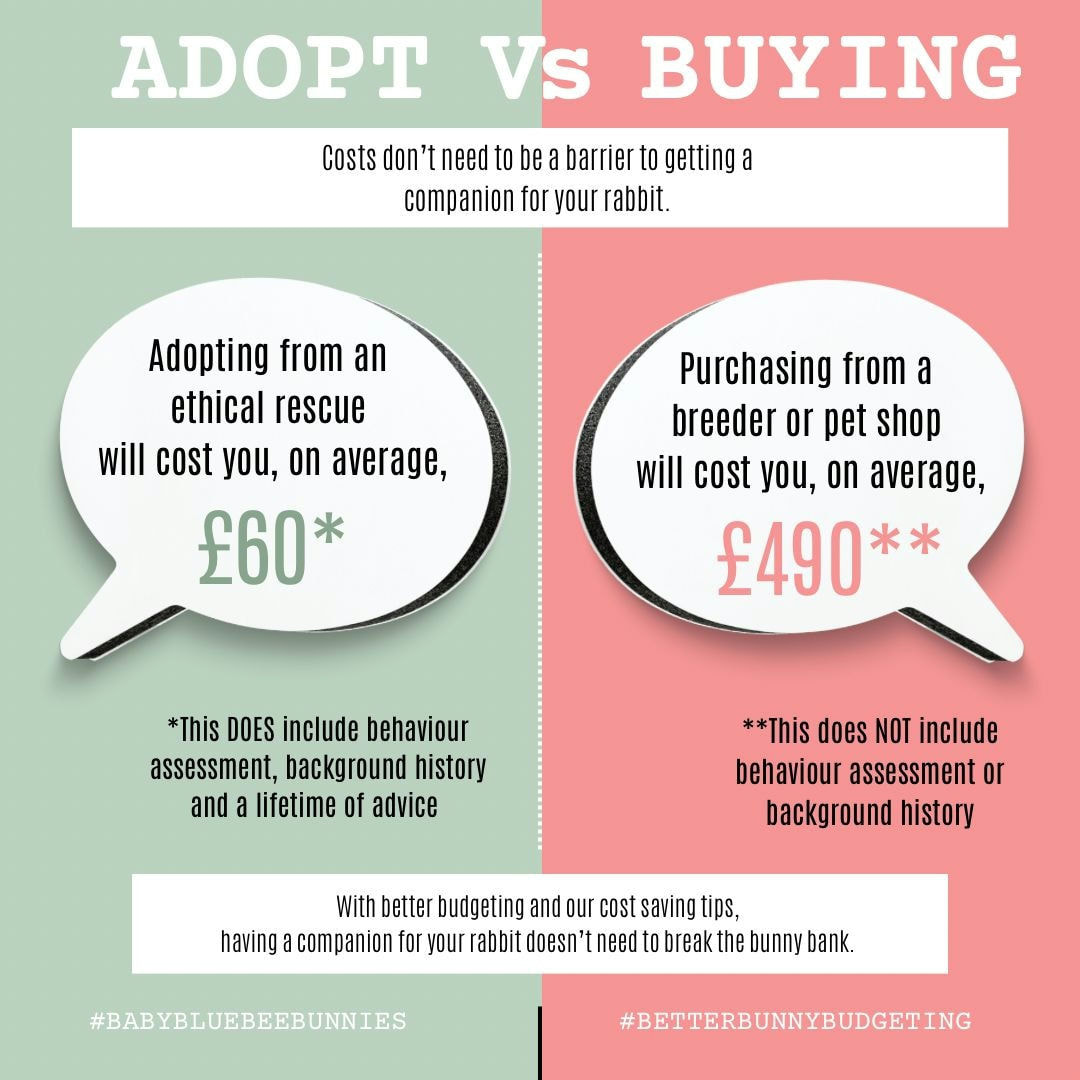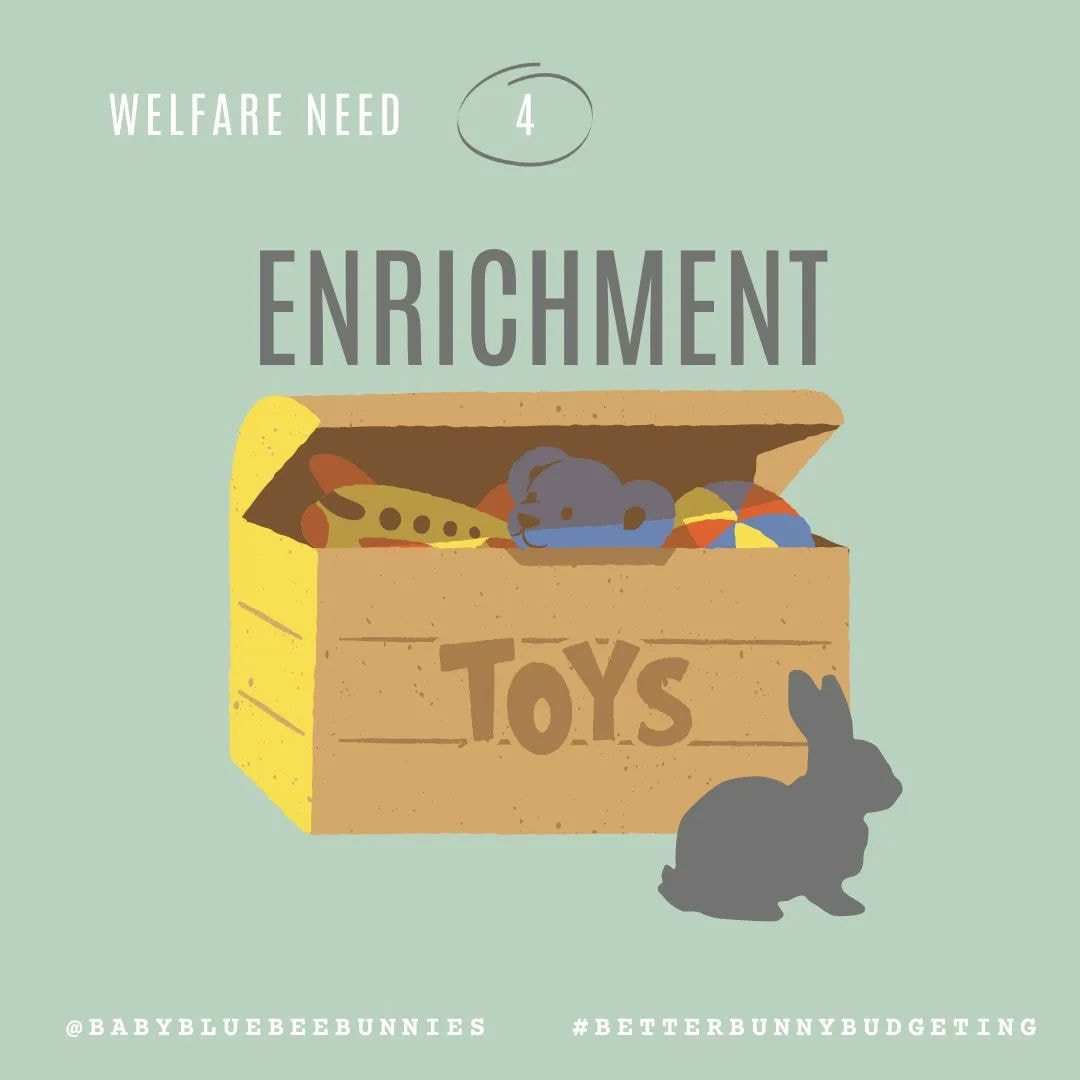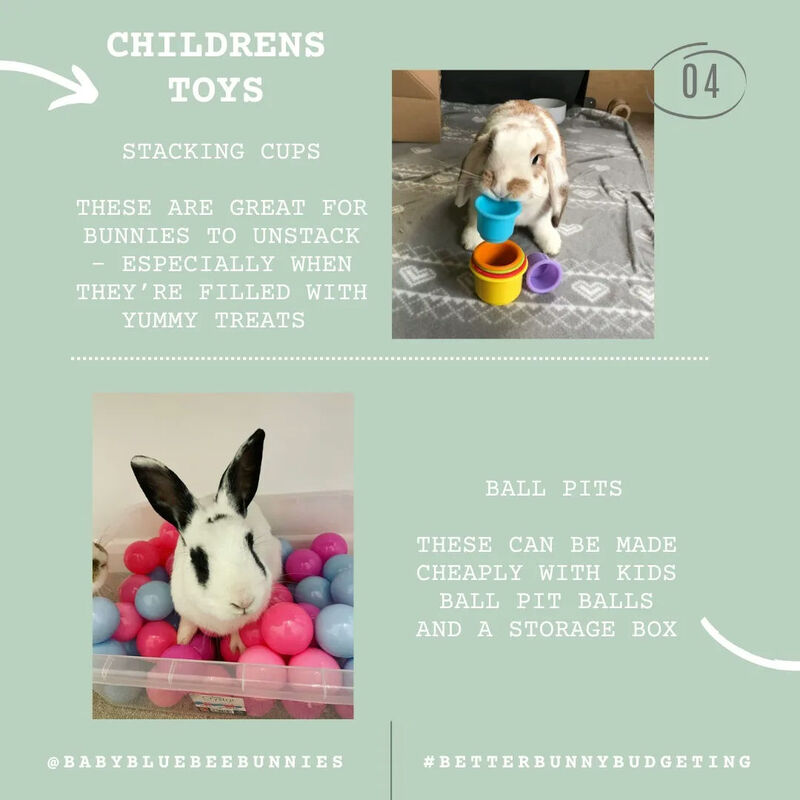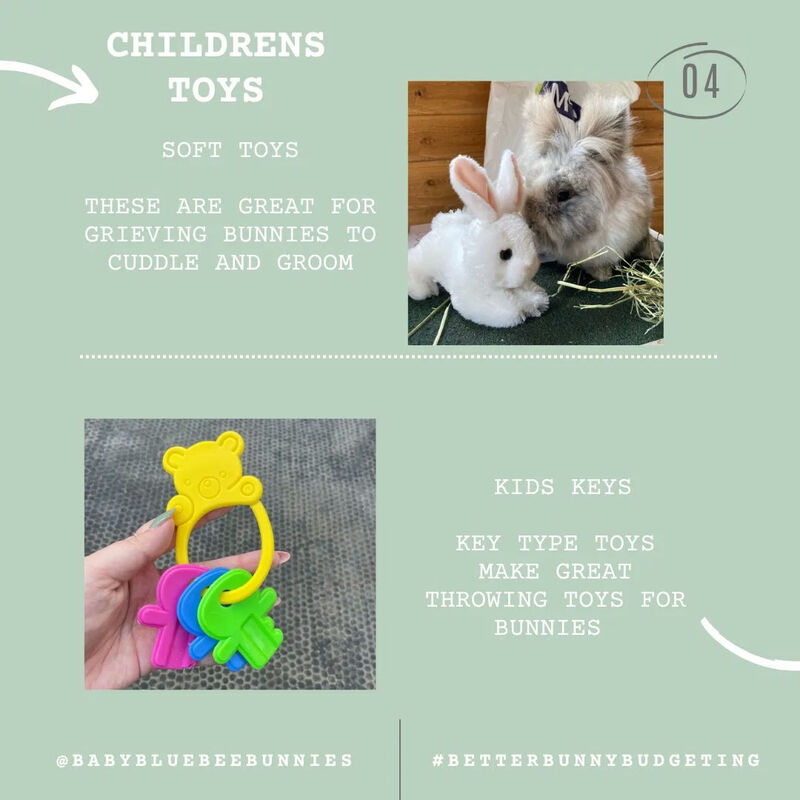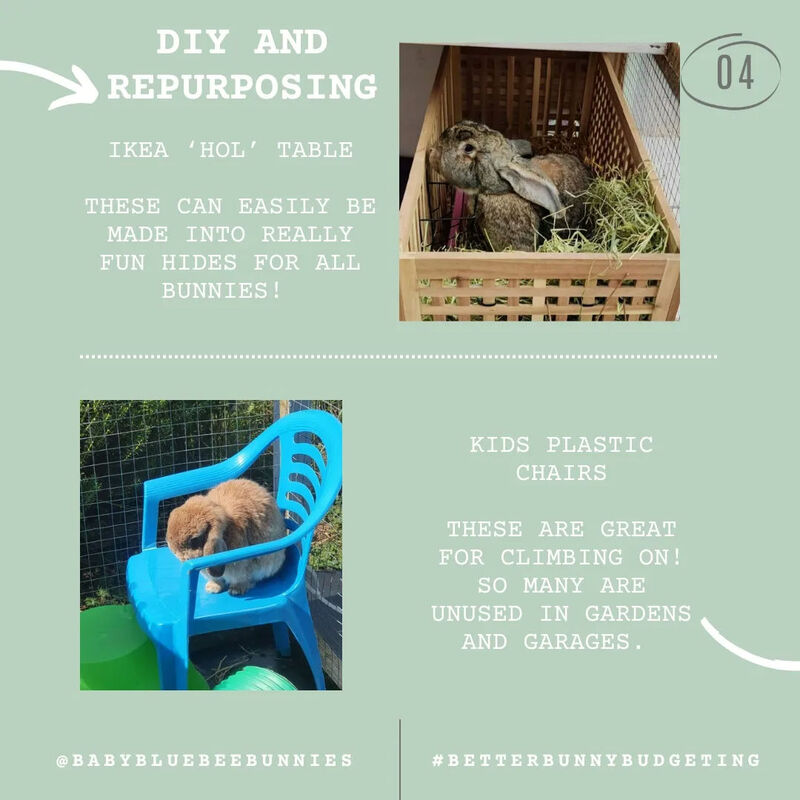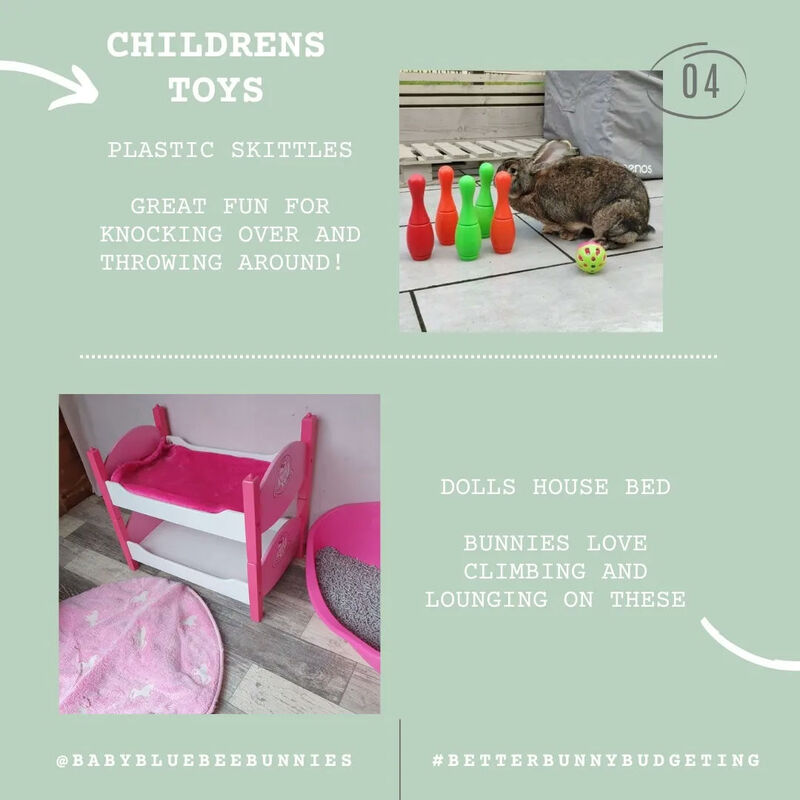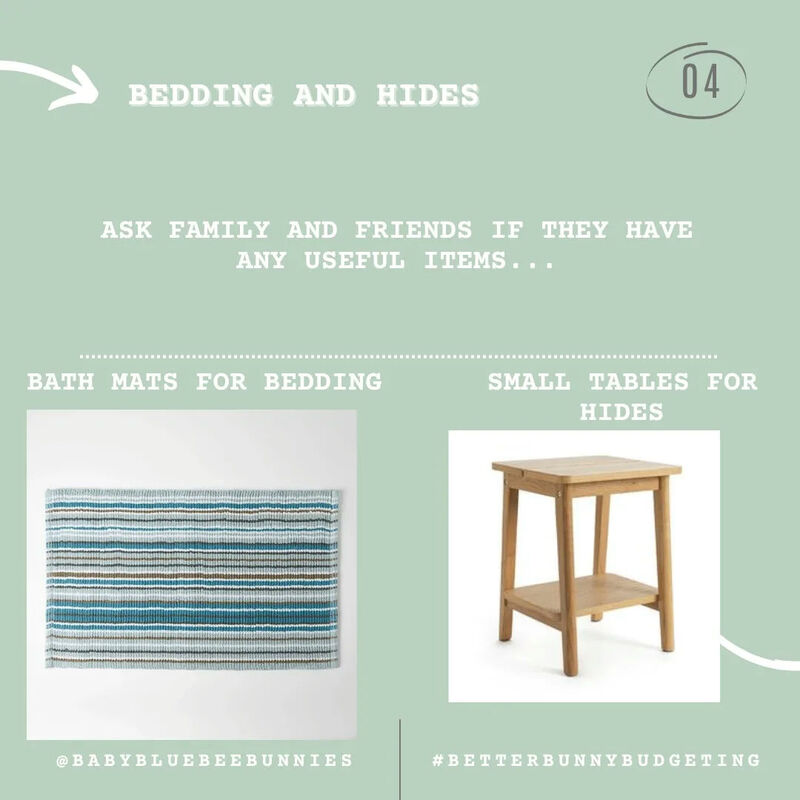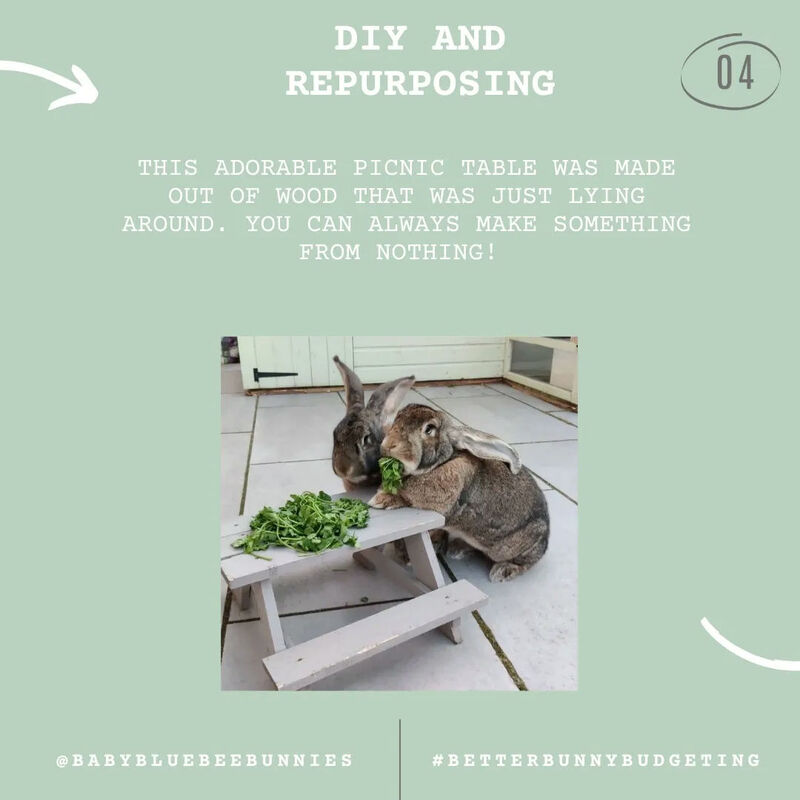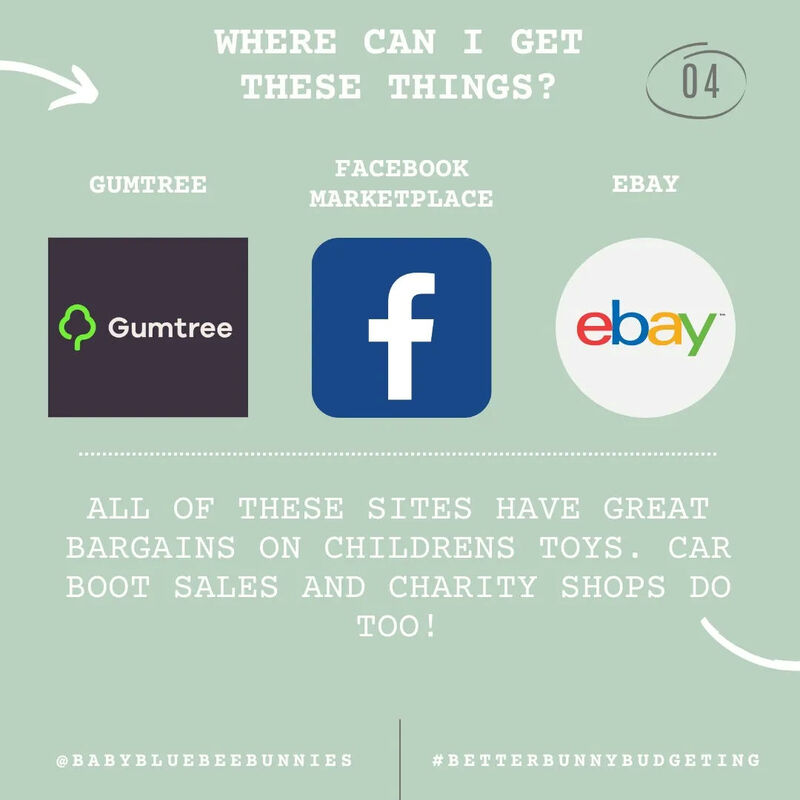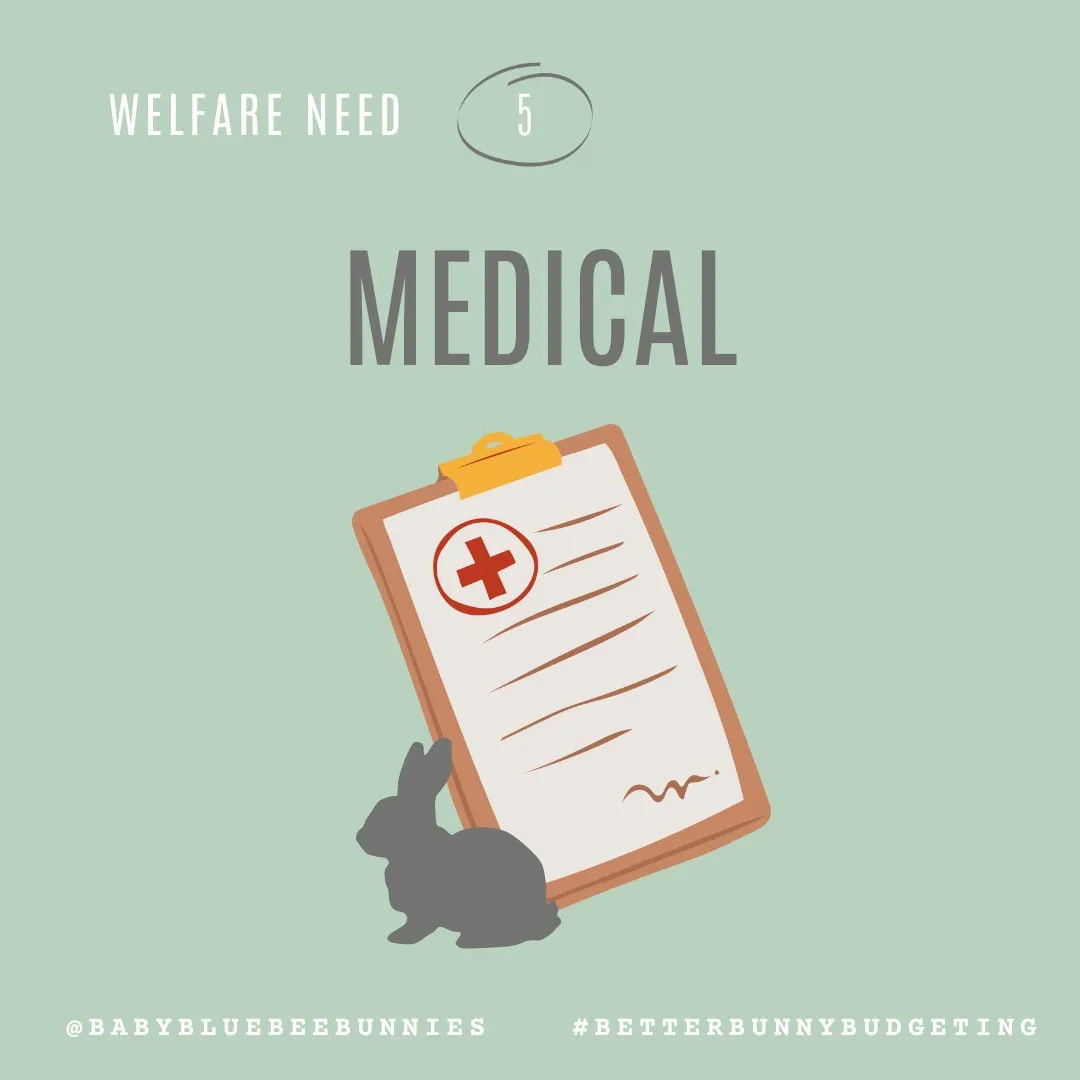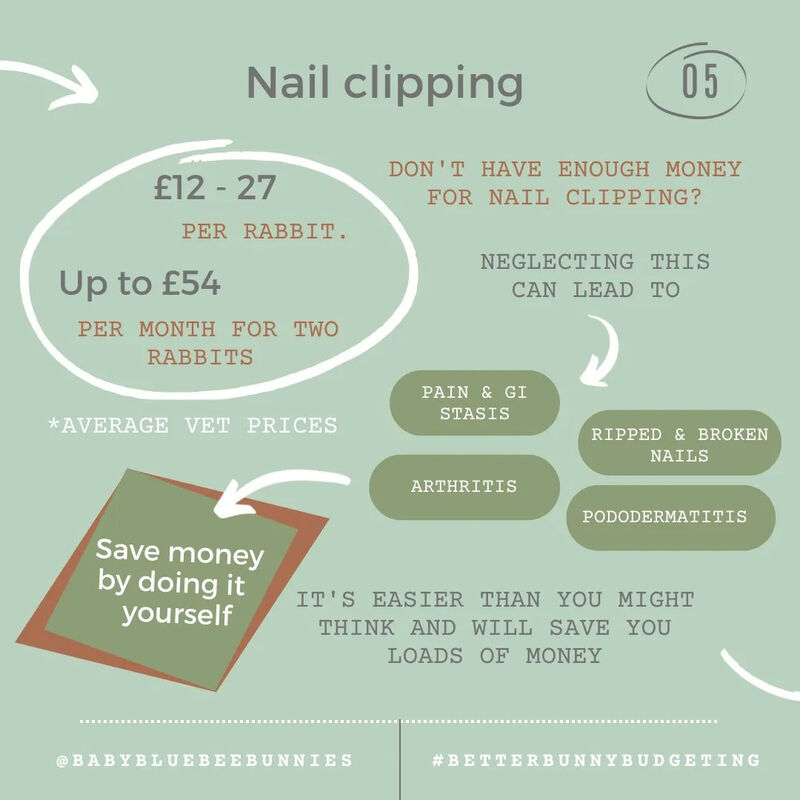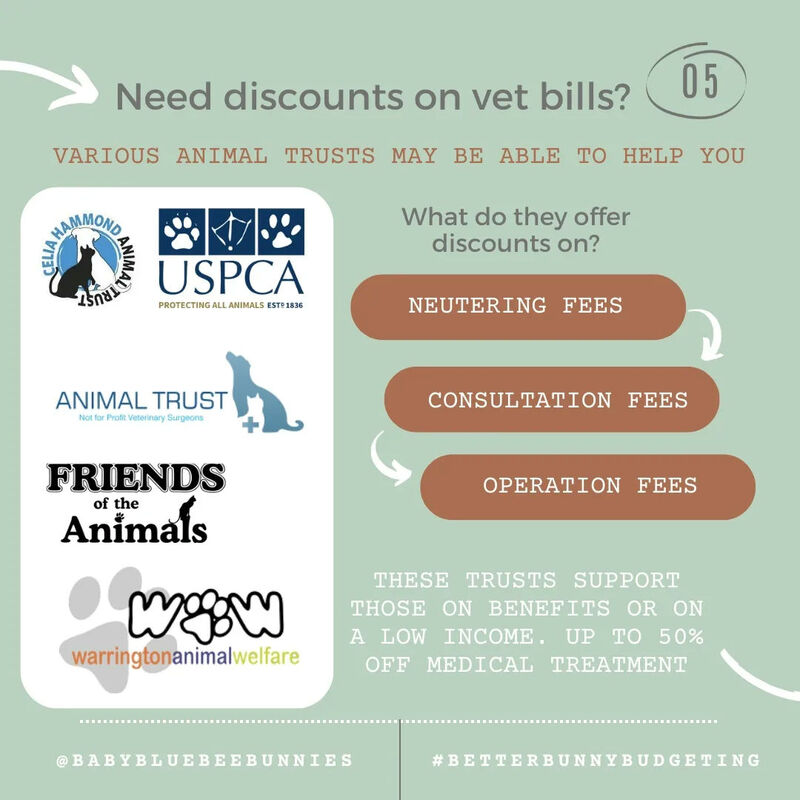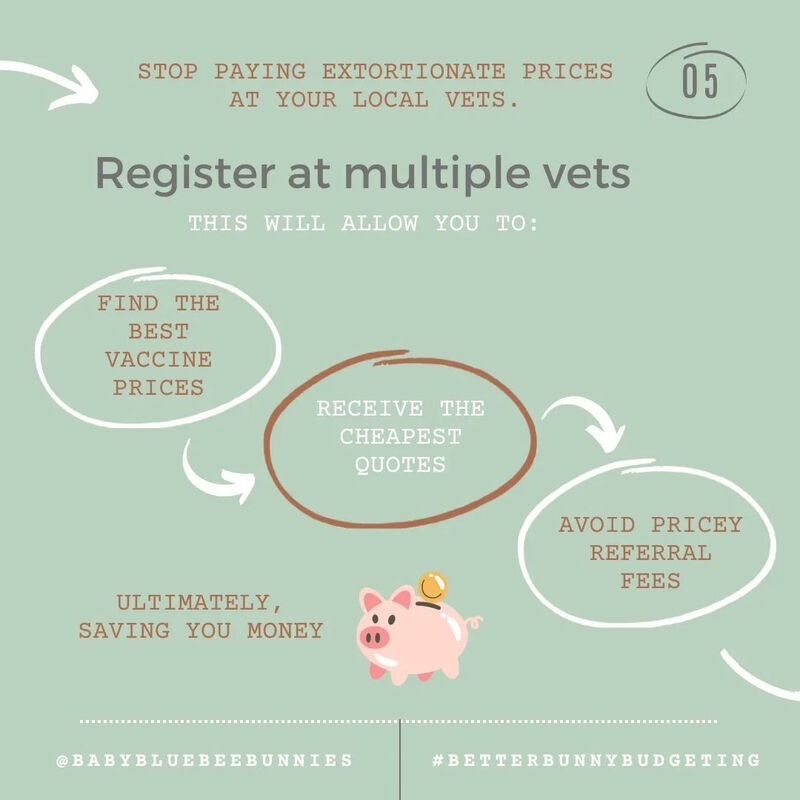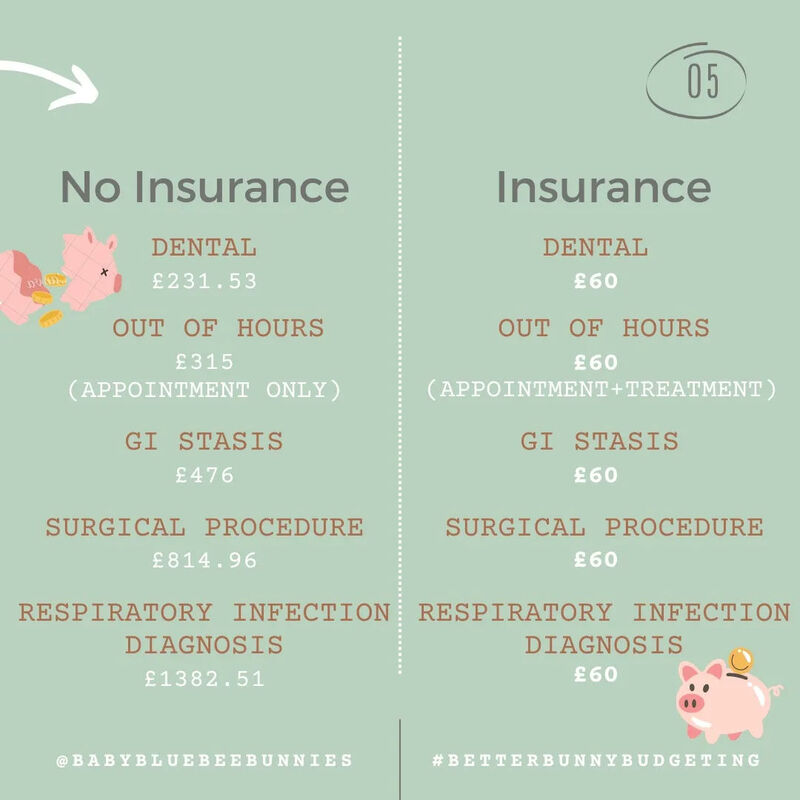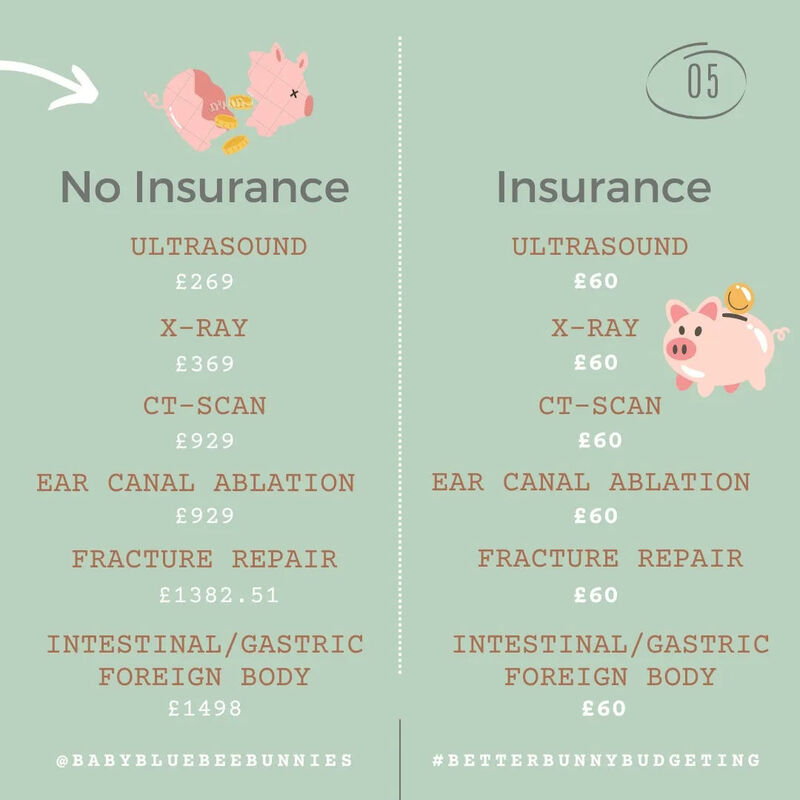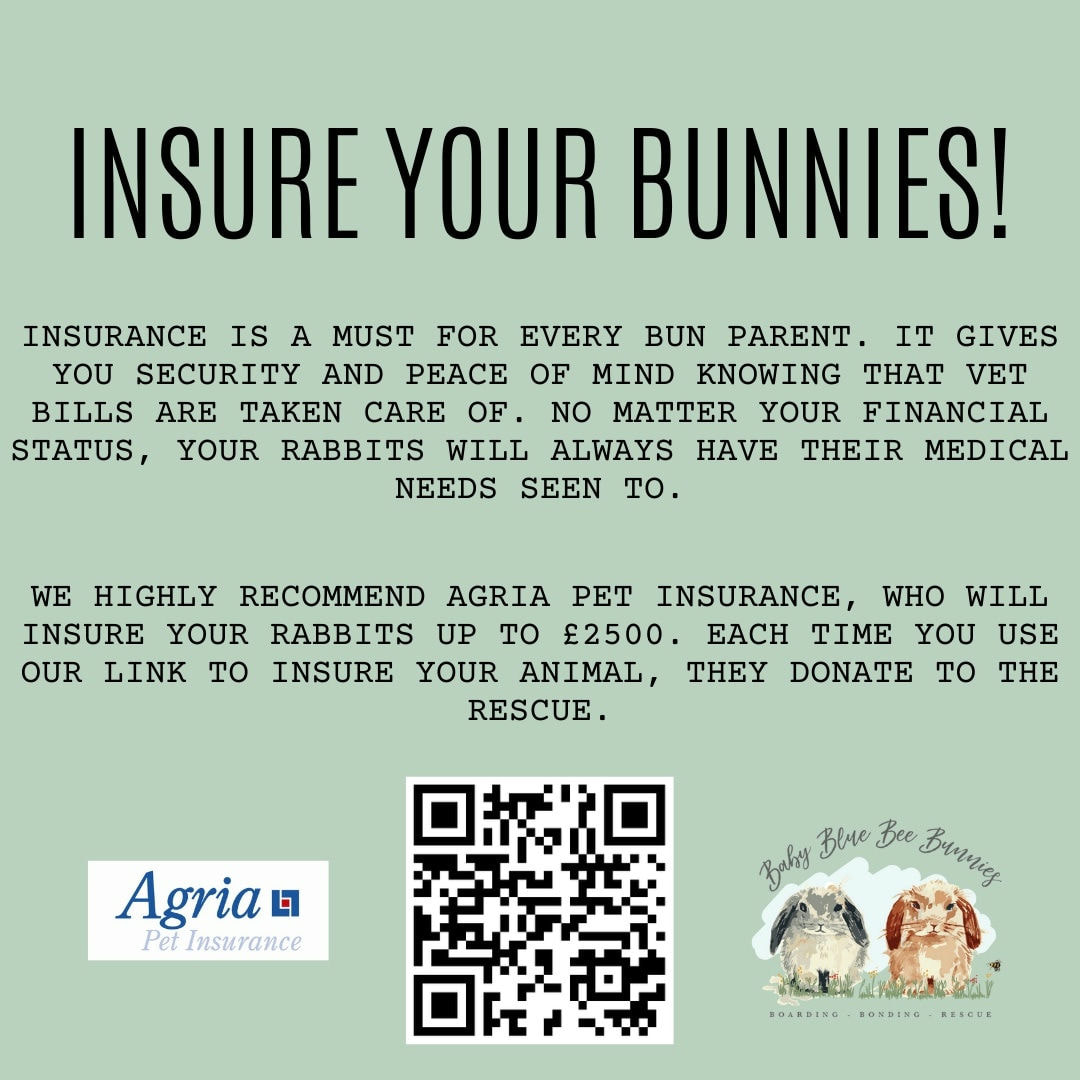What is the aim of this campaign?
- To prevent rabbits being abandoned and reduce the rising costs which cause care givers to surrender rabbits to rescues.
- To prevent rabbits being neglected or impacted due to the cost of living crisis.
Why?
According to the PDSA Animal Wellbeing report, UK families brought home 330,000 new rabbits between February 2020 and March 2022. That means that for every three people who have rabbits, one person obtained their rabbit during the COVID-19 pandemic.
This, combined with the cost-of-living crisis, has led to an unprecedented number of surrender requests. Since March 2022, we have received almost 200 surrender enquiries from people who are struggling to afford their rabbits.
We ran a survey which showed that in the rabbit community; 10% of people said they may have to surrender their rabbits, and 10% would sacrifice veterinary treatment to cut costs. This suggests that up to 100,000 of the 1 million rabbits in the UK could be surrendered or neglected due to the cost-of-living crisis.
This, combined with the cost-of-living crisis, has led to an unprecedented number of surrender requests. Since March 2022, we have received almost 200 surrender enquiries from people who are struggling to afford their rabbits.
We ran a survey which showed that in the rabbit community; 10% of people said they may have to surrender their rabbits, and 10% would sacrifice veterinary treatment to cut costs. This suggests that up to 100,000 of the 1 million rabbits in the UK could be surrendered or neglected due to the cost-of-living crisis.
Good housing is important to provide shelter, safety and to provide enough space to allow rabbits to display their natural behaviours such as zoomies, jumping and hiding. We are going to discuss some simple ways you can create suitable housing on a budget. It doesn't need to be costly to be safe and efficient! To save money long term, do regular maintenance on your housing and make sure to do spot repairs often.
- Shop around for 2nd hand sheds and wooden playhouses. Websites like Facebook marketplace, Gumtree and Ebay have great bargains. Often even for free!
- You don’t need to be a DIY guru! Lino offcuts make an affordable, easily cleaned floor. You can get these very cheap at your local carpet shop.
- Wooden pallets are also often given away for free and can be used creatively in an outdoor set up in many ways, even to build a whole set up with.
- You don’t need to spend a fortune on expensive litter trays either. A simple underbed storage box provides the space your rabbits need to munch hay all day. Available from most home stores for a few ££.
- Hanging baskets are great for stuffing in lots and lots of hay to make sure your rabbits never run out! Shop the end of summer sales in poundshops and garden centres to grab one for pennies.
- Your local building merchant may have mesh offcuts and end of rolls for cheap or free. You can also get industrial piping for joining set ups together and for play tunnels.
- Family and friends may also have super useful items that they no longer need so it is worth asking around. Items like tarpaulin are great for protecting against wind and rain and are often lying around people's garages.
- Slabs and decking boards provide secure flooring which stops your rabbits digging out or a predator digging in. You can turn on 'search alerts' on selling sites or Freecycle to be notified when some are posted for free in your area.
A good diet is important and vital in helping your rabbits stay as healthy as possible. A poor diet leads to more vet trips (and bills!) as well as extra stress for your rabbits and yourself. Let's look at some simple ways you can maintain a healthy diet for your buns and save some money.
- The most important part of a rabbits’ diet is hay. Small bags of hay from pet shops are expensive and poor quality. Check out farms, farm shops and horse suppliers in your local area and buy whole square bales. This will work out so much cheaper and you will find your rabbits prefer it too!
- Forage is great however small bags from shops can be expensive. A better option is to bulk buy bigger bags. Why not get creative and mix some of your own blends to keep it varied and interesting for your rabbits. There is also a tendency to overfeed dried forage. Try to remember that a 1/4 cup of dried forage is roughly the equivalent of 1 cup of fresh forage/herbs so cut back and feed variety and quality, not quantity.
- Alternatively you could go foraging! During the spring summer months there is plenty to be found and if you harvest enough, you can dry and store it for the Winter months.
- Check with your neighbours or friends and family and see if anyone has an apple tree or other bunny safe trees (birch, pear, willow are all popular options) and see if you can have a few branches or dandelions! Ask them to save their cuttings and clippings for you, as long as they are pesticide free.
- Dandelions, plantain and bunny safe herbs can be easily grown from seed. If you don’t have a garden what about setting up a windowsill garden and grow your own. When chopping your carrots, make sure to keep the top and grow carrot tops in saucers of water on your windowsills!
- Shop around! Check prices and look for any deals. Price comparison apps can be a useful tool too. If retailers you use frequently have a points scheme, remember to register and use your points to save on your essential items.
- Subscribe and save! A great way to save money over time.
Learn to forage and feed your rabbits for free !
Companionship
Many people will think “more bunnies, more spending” but that is not always the case… Bulk buying can be much more cost effective than buying smaller packages and items for just one rabbit.
Where can I bulk buy things from?
As well as the benefit of bulk buying, rabbits with companions are much less likely to experience health problems which only means one thing for you… less vets bills! It can also be cheaper to have two rabbits on your pet insurance than to insure rabbits separately.
These are just two of the significant benefits to having more than one rabbit! The list is endless
But what about where to get your rabbit a companion from?
Adopting is significantly cheaper for you than buying a rabbit, as all the routine medical expenses have been taken care of already! Reach out to a rescue and #adoptdontshop
Where can I bulk buy things from?
- Local Farms
- Farm shops
- Online wholesale retailers
As well as the benefit of bulk buying, rabbits with companions are much less likely to experience health problems which only means one thing for you… less vets bills! It can also be cheaper to have two rabbits on your pet insurance than to insure rabbits separately.
These are just two of the significant benefits to having more than one rabbit! The list is endless
But what about where to get your rabbit a companion from?
Adopting is significantly cheaper for you than buying a rabbit, as all the routine medical expenses have been taken care of already! Reach out to a rescue and #adoptdontshop
Enrichment can often be thought of as expensive or forgotten about, but it can easily be met on a low or zero budget!
- Childrens toys can be the perfect toy for your buns and there are endless second hand toys for sale in charity shops, Facebook marketplace, gumtree, eBay etc! Some top picks are; stacking cups, toy keys and soft toys.
- You can also hand make toys such as willow balls and pine cone garlands (most of the required items for these can be collected for free!!). Keep your eyes peeled for a rabbit toy tutorial on our socials tomorrow
- A lot of old furniture can be upcycled and made into hides for your rabbits. The IKEA HOL table is a great one for doing this with and there’s always one on Facebook marketplace!
- Have some old wood lying around? Use it to make a little picnic bench for your buns!
- What about cheap children's table and chairs sets? These make perfect play areas for your buns, especially outdoors as they are waterproof.
- Don't forget simple stuff like hiding food around and encouraging foraging in a big tub of hay, it's a game that costs nothing!
- Plastic industrial pipe offcuts are often given away for free on building sites, they make great outdoor play tunnels.
- Don't bin old torn or chewed fleece blankets - chop them up into strips and use them to make a snuffle mat.
- Digging boxes can be made up of cheap and free materials, like top soil which can be found for free or kids ball pits which you can often pick up cheap on gumtree.
- Peg a bit of jute string across your buns area and use clothes pegs to peg herbs and branches along to encourage them to reach up and grab them down. Costs pennies but is so much fun.
- Keep an eye on our stories for some bunny bargains that some people have found in charity shops and online! You will be shocked at just what bargains have been found.
Make free enrichment toys!
Rabbits require a lot of Veterinary care, with so many health conditions they can be prone to. Regular check ups and routine vet visits are essential, to keep on top of things. Not to mention vaccinations which are required annually. How can you continue to provide your rabbits with the adequate medical care if you are struggling financially?
- Learn to clip your buns nails yourself. Practise makes perfect, there are many tutorials and the more you practise the more confident you will get. Doing grooming yourself will save you a lot of money in the long run and by ensuring their nails stay nice and short, you will prevent vet bills which could be avoided such as broken toes and sore hocks.
- Reach out to organisations to assist with vet bills. There are a number of non profit organisations who specifically fundraise to help people with vet care if they are of low income. A full list of these in the UK can be found on our website. There may even be neutering or vaccination clinics that run every so often where you can get reductions or vouchers towards these.
- Ask your vets about care plans. Care plans work out at a big annual saving towards routine medical care and check ups.
- Register with multiple vet practises. This will come in handy for comparing vaccination costs and avoiding referral fees. You may want to have a local vet for routine care, an exotic practise for full work ups and a hospital for out of hours care.
- Ask your vets about payment plans - these will help you ensure you can pay over time in installments.
- Make sure you have insurance! This should not be a cost you should scrimp on. For as little as £6 per month, you are guaranteed a large sum of money towards your vet bills with only having to pay the small excess.
- If your bun is on a regular medication, ask your vet to write you a prescription. This will work our significantly cheaper for the medicine on a regular basis as you can purchase the meds online with a prescription.
Are you prepared if your rabbits get sick overnight?
Do you have thousands in the bank for:
If your rabbit eats something they shouldn't and needs emergency surgery?
What about if they jump and get a broken leg?
Investigations for difficulty breathing?
How about ear infections and abscesses?
All of these cost thousands to treat and can happen to any rabbit at any time.
Having insurance saves you money over time, by paying a small monthly fee you have a safety net for any medical care your bun needs. It is worth every penny! Putting £10 a month aside into a bank account would only equate to £120, but with insurance you would have £2500 towards vet bills. It's a no brainer!
Do you have thousands in the bank for:
If your rabbit eats something they shouldn't and needs emergency surgery?
What about if they jump and get a broken leg?
Investigations for difficulty breathing?
How about ear infections and abscesses?
All of these cost thousands to treat and can happen to any rabbit at any time.
Having insurance saves you money over time, by paying a small monthly fee you have a safety net for any medical care your bun needs. It is worth every penny! Putting £10 a month aside into a bank account would only equate to £120, but with insurance you would have £2500 towards vet bills. It's a no brainer!

